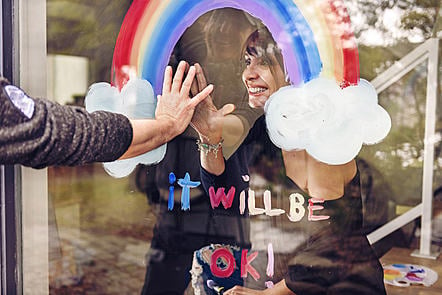The importance of learning first aid: 5 reasons to learn
Explore the life-saving importance of first aid and find out which courses are available to help you learn the basics.

First aid refers to emergency treatment that’s immediately given to an injured or ill person until full medical treatment is available. While it’s a life-saving and empowering skill that can save lives, unfortunately, it’s not a common skill. Only one in 20 people in the UK know what to do in a first aid emergency.
So, you’re in the right place. This article will explore why first aid is important and provide you with the helpful courses you’ll need to be a better prepared and more confident first aider. Let’s take a look at why first aid training matters, and how you can help make a huge difference in an emergency situation.
Why should you learn first aid?
Accidents happen – which is why the ability to think fast, stay calm and act in an emergency is an invaluable skill. Taking a first aid course is an opportunity not only to learn important new skills, develop existing ones but also transform your everyday life. From injury prevention to confidence, here are five reasons why a first aid course should be next on your agenda.




It helps save lives
According to the British Red Cross, 85% of adults in the UK lack the knowledge and confidence to act and administer first aid. It’s a staggering figure, but being able to take action means that you could help to save someone’s life. This is why first aid is so important, as you’ll not only know how to remain calm in an emergency situation but assess what measures you need to take.
Appropriate first aid could mean the difference between life and death, so by undertaking first aid training you’ll be doing your bit to help others and learn a valuable new skill. Whether someone is suffering from a stroke or choking, you’ll be able to give them the appropriate help they need.
It provides comfort to those who need it
Not all injuries or illnesses are life-threatening. In many cases, you might just need to provide comfort to someone until a medical professional arrives. With first aid training, you’ll come to understand the difference and ensure that someone isn’t in too much pain and suffering while they wait. The care you provide could also possibly mean that they no longer require additional help.
As a first aider, you’ll be better equipped to assess any injury or illness and provide some level of pain relief to ensure that person is as comfortable as possible. For example, if someone falls and rolls their ankle in an office environment, you can determine how much damage they’ve done, what care is required, and whether they need to go to the hospital.
Also, if someone is suffering from anxiety or having a panic attack, the initial care you offer could help to put them at ease and make them feel more comfortable until additional help arrives.




You’ll learn how to reduce and prevent injuries
Every second counts with first aid care, which is why a fully-equipped first aid kit is absolutely necessary in public settings – so you can respond as quickly as possible.
Providing the appropriate care early on could significantly reduce pain and limit the impact of the illness or injury. Until professional medical help arrives, you’re able to prevent a condition from worsening and stabilise the individual.
Once help does arrive, you’ll be well placed to communicate with the emergency services about what is wrong, helping them enormously and saving precious time.
Acquiring first aid training knowledge could also help prevent personal injuries by being more aware of potential hazards and risks. You’ll be able to recognise when a situation looks like it could lead to injury, as well as spot signs that suggest when someone looks like they’re about to fall ill.
You’ll gain confidence when providing care to others
Even basic first aid training makes a big difference. In emergency situations, you’ll be more confident, remaining calm under pressure and having resilience – all skills that are crucial in stressful and serious situations. This will benefit both yourself and whoever needs urgent care.
Not only does the confidence developed after first aid training help you from a medical point of view, but the skills and techniques you learn will help you to be more confident in other areas of life. You can expect a great sense of achievement knowing that you’ll be able to support someone in their time of need.
It encourages you to look after yourself
The final reason learning first aid is important is all about you. While completing first aid training, you’ll be taught the importance of looking after yourself and thinking about your own safety. Not only is self-care important for you, but it also means you can be the best version of yourself when helping others.
First aid training also focuses on areas like healthy living and positive lifestyle choices, getting you thinking about your own health, wellbeing and injury, and illness prevention.


I’m interested in learning first aid – what now?
Hopefully, you’re now more familiar with why first aid is important. When someone is suffering from an illness or injury and emergency care is required, every second is vital. First aid is a life-saving skill that every adult should consider learning, so you’re well-equipped to calmly respond in an emergency situation and provide the appropriate care.
At FutureLearn, we offer a range of first aid, professionally-led, training courses in a supportive and flexible learning environment. Whether you’re learning first aid basics or specialising in mental health first aid care, we have a course that suits your needs. Why not take a look at some of the first aid training courses we offer today?
Online first aid courses by FutureLearn
- Basic First Aid: How to Be an Everyday Hero by the University of Glasgow
- Psychological First Aid: Supporting Children and Young People by the UK Health Security Agency
- Antimicrobial Stewardship in Wound Management by the British Society for Antimicrobial Chemotherapy and the European Wound Management Association
- COVID-19: Psychological First Aid by the UK Health Security Agency
- Basic First Aid for Animals and Pets by Learning Lounge
- Personal Trainer’s Toolkit: Mental Health First Aid for Fitness Trainersby Central Queensland University
- Understanding Epilepsy and its Neuropsychology by the University of Padova
- Diabetes Explained by UCOL (Universal College of Learning) & Te Pūkenga – New Zealand Institute of Skills and Technology.




